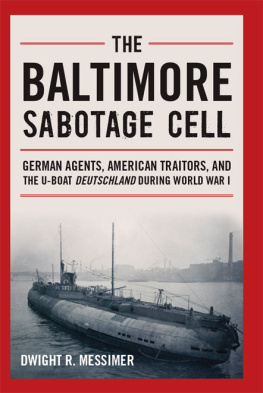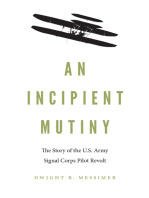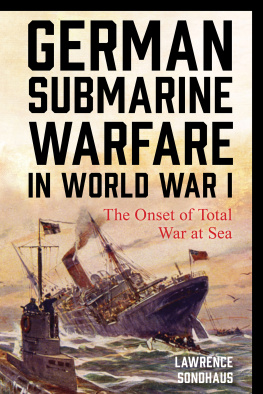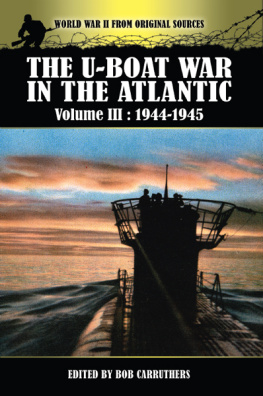

This book has been brought to publication with the generous assistance of Marguerite and Gerry Lenfest.
Naval Institute Press
291 Wood Road
Annapolis, MD 21402
2015 by Dwight R. Messimer
All rights reserved. No part of this book may be reproduced or utilized in any form or by any means, electronic or mechanical, including photocopying and recording, or by any information storage and retrieval system, without permission in writing from the publisher.
Library of Congress Cataloging-in-Publication Data
Messimer, Dwight R., 1937-
The Baltimore Sabotage Cell : German agents, American traitors, and the U-boat Deutschland during World War I / by Dwight R. Messimer.
1 online resource.
Includes bibliographical references and index.
Description based on print version record and CIP data provided by publisher; resource not viewed.
ISBN 978-1-61251-869-5 (epub) 1. Deutschland (Submarine) 2. World War, 1914-1918Naval operationsSubmarine. 3. World War, 1914-1918Naval operations, German. 4. Baltimore Sabotage Cell. 5. Espionage, GermanUnited StatesHistory20th century. 6. World War, 1914-1918Secret serviceGermany. 7. World War, 1914-1918Secret serviceUnited States. 8. United States Bureau of InvestigationHistory. 9. SabotageUnited StatesHistory20th century. 10. World War, 1914-1918United States. I. Title. II. Title: German agents, American traitors, and the U-boat Deutschland during World War I.
D592.D4
940.48743dc23
2015001321

 Print editions meet the requirements of ANSI/NISO z39.48-1992 (Permanence of Paper).
Print editions meet the requirements of ANSI/NISO z39.48-1992 (Permanence of Paper).
23 22 21 20 19 18 17 16 15 9 8 7 6 5 4 3 2 1
First printing

DEDICATED TO JACK KEANE,
A NAVAL AVIATOR, A GENTLEMAN,
AND A VERY GOOD FRIEND

CONTENTS
Photos
Maps
W hen I did the research for The Merchant U-Boat (Naval Institute Press, 1988) in 198587, I focused on the U-Deutschland exclusively, because I was unaware of her connection to the Baltimore sabotage cell. During the intervening twenty-eight years the great information highway known as the World Wide Web came into existence and grew into an unimaginably rich lode of information on the U-Deutschland. Previously inaccessible archives in Germany and the United States opened up online, making it possible to literally travel the globe and never set foot out of my house. The amount of new material that became available was, and still is, staggering.
During the same period a number of scholarly works appeared that touched on various aspects of Germanys cargo submarine project. Those new works focused on the British blockade and its financial and social effects on Germany, on the role of Deutschebank in German-American relations, and on Germanys intelligence agenciesthe navys Etappendienst and the armys Geheimdienst, with its special sabotage unit, Sektion Politik.
The Web also provided a huge amount of material that had been effectively out of my reach in 1986 and 87. Postwar congressional hearings on Brewing and Liquor Interests and German Propaganda, the findings of the Mixed Claims Commission with regard to the Black Tom Explosion and the Kingsland Fire, the records of the Bureau of Investigation (forerunner of todays FBI), and the records of the Department of State for World War I are a few in the hoard of documents that became available on my computer screen.
And the Web made it possible to join an online forum for collectors of war relics that put me into contact with several people who have an interest in the submarine U-Deutschland. During nearly two years on the forum several of the members provided me with photographs of the boat, various artifacts from it, and bits and pieces of information that helped add color to the account. Nearly all of those contributors are named in connection with the items they contributed. The discussions we had about the U-Deutschland also produced interesting tidbits that I have incorporated into the text. Those people are Luke Lutton (USA), Steve Zukowsky (USA), Howard Hirsch (USA), Gary McGee (New Zealand), Fritz Lohmann (Germany), Jn Jensen (Norway), and Claas Stckmeyer (Germany). One archivist in particular was very helpfulJonathan Eaker, at the Library of Congress.

Sources: Harrison S. Kerrick, Military and Naval America (New York and Garden City, N.Y.: Doubleday, Page, 1916); Janes Fighting Ships of the Great War (n.p.: Janes, 1919); U.S. Naval Academy Department of Languages, Naval Phraseology (Annapolis, Md.: Naval Institute Press, 1934).

K arl Wilhelm Frlich sat at the head of the kitchen table, his sixteen-year-old son Heinz-Wilhelm on his right and his twelve-year-old daughter Brigitte on his left. His wife Helga was still in the kitchen. It was 18 August 1915, three weeks into the second year of the Great War. Karl was an international accounts clerk at the Handelsbank Berlin, and he was worried.
His wife entered the room carrying a steaming bowl in one hand and a breadbasket in the other, set them on the table, and turned to the china cabinet for bowls. Karl spoke as she distributed the bowls. The new ration allowances were released today.
Helga pulled back her chair and sat down. What have they cut back on this time?
Her husband stirred his soup as he answered, Meat and bread. Starting on Monday the allowance is 350 grams a week for meat and two hundred grams daily for bread.
Next page


















